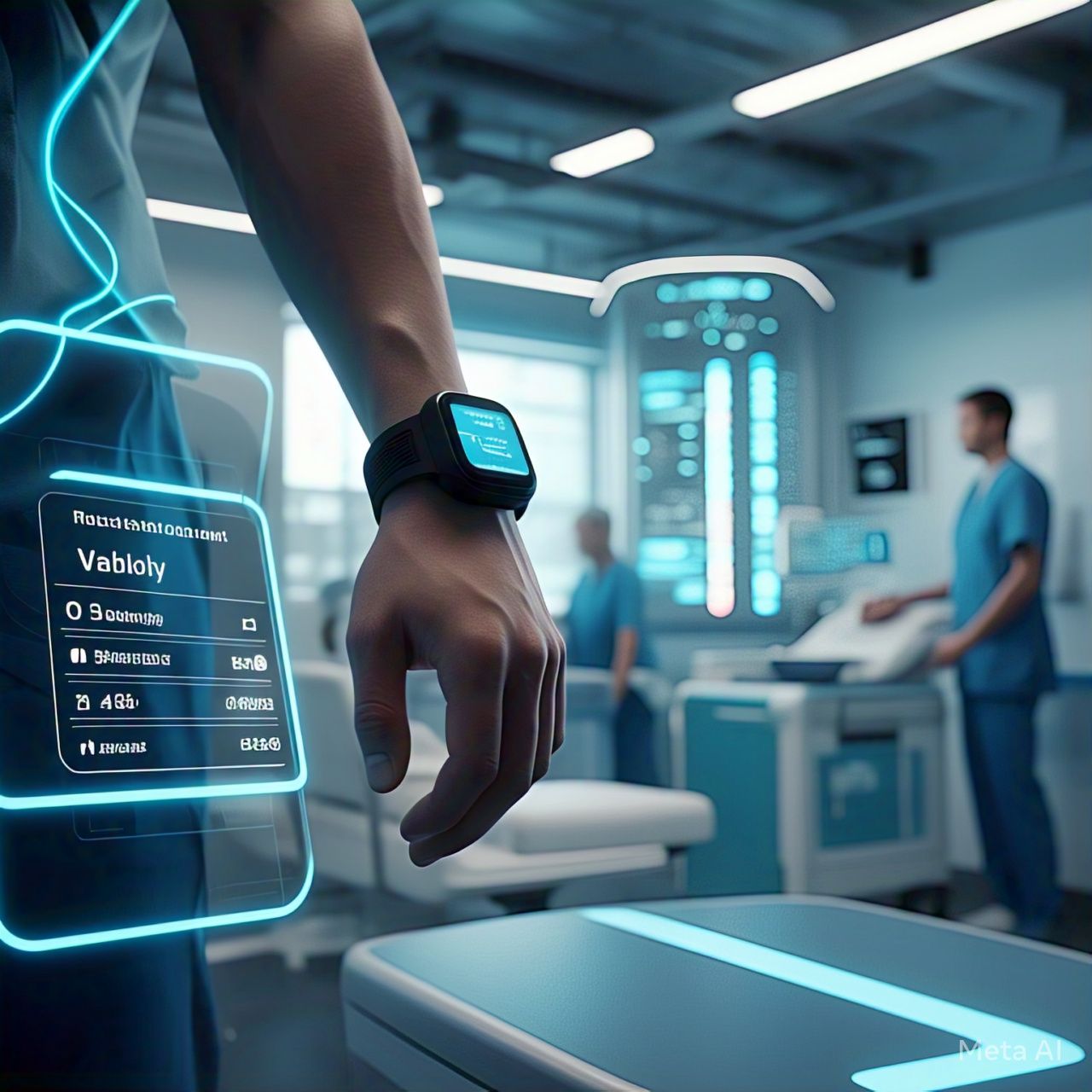Table of Contents
- Introduction
- The Role of AI in Wearable Technology
- How AI-Powered Wearables Work
- Applications of AI in Preventive Healthcare
- Early Disease Detection
- Real-Time Health Monitoring
- Personalized Fitness and Wellness Plans
- Chronic Disease Management
- Benefits of AI-Powered Wearables
- Challenges and Limitations of AI Wearables
- The Future of AI-Powered Wearables in Healthcare
- Conclusion
- FAQs
- Citations
Introduction
AI-powered wearables are revolutionizing preventive healthcare by enabling real-time health monitoring, early disease detection, and personalized health recommendations. From smartwatches that monitor heart rates to AI-driven glucose monitors, these devices help individuals take proactive steps toward maintaining their health. With advancements in artificial intelligence, wearable technology is becoming more accurate, efficient, and indispensable in modern healthcare.
The Role of AI in Wearable Technology
Artificial intelligence enhances wearable devices by analyzing vast amounts of health data, detecting patterns, and providing actionable insights. By integrating AI algorithms with biometric sensors, wearables can predict potential health issues before they become critical, offering a proactive approach to healthcare.
Key AI Technologies in Wearable Devices:
- Machine Learning (ML): Learns from user data to provide personalized health insights.
- Computer Vision: Analyzes images for early disease detection (e.g., skin cancer detection in smartwatches).
- Natural Language Processing (NLP): Enables voice-based health assistants for real-time guidance.
- Predictive Analytics: Identifies potential health risks based on user behavior and historical data.
How AI-Powered Wearables Work
AI-powered wearables use sensors to collect physiological data, such as heart rate, oxygen levels, and activity levels. AI algorithms process this data to provide real-time insights, detect anomalies, and generate personalized recommendations.
| Feature | Function |
|---|---|
| Heart Rate Monitoring | Detects irregular heartbeats and potential cardiovascular issues. |
| Sleep Tracking | Analyzes sleep patterns to recommend better sleep habits. |
| Activity Tracking | Monitors steps, calories, and workouts to promote an active lifestyle. |
| Blood Sugar Monitoring | AI-driven continuous glucose monitors help manage diabetes. |
Applications of AI in Preventive Healthcare
AI-powered wearables have diverse applications in healthcare, enhancing early disease detection, real-time monitoring, fitness tracking, and chronic disease management.
Early Disease Detection
AI wearables detect early signs of diseases such as heart disease, diabetes, and even neurological disorders like Parkinson’s by continuously analyzing biometric data.
Real-Time Health Monitoring
Patients with chronic conditions can benefit from continuous health tracking, with AI detecting potential complications and alerting users or healthcare professionals when necessary.
Personalized Fitness and Wellness Plans
AI-powered wearables analyze user habits and recommend customized exercise and diet plans to improve overall health.
Chronic Disease Management
AI wearables assist in managing chronic illnesses by tracking vital signs, monitoring medication adherence, and alerting users to potential health risks.
Benefits of AI-Powered Wearables
- Early Detection of Health Issues: Helps identify potential health problems before symptoms appear.
- Improved Patient Engagement: Encourages users to monitor their own health actively.
- Personalized Healthcare: AI algorithms tailor recommendations to individual needs.
- Reduced Healthcare Costs: Preventive measures help reduce hospital visits and medical expenses.
- Remote Patient Monitoring: Enhances access to healthcare, especially for elderly or rural populations.
Challenges and Limitations of AI Wearables
Despite their advantages, AI-powered wearables face challenges such as:
- Data Privacy Concerns: Personal health data security and ethical issues regarding data usage.
- Accuracy and Reliability: AI algorithms require continuous updates and refinements.
- Integration with Healthcare Systems: Compatibility with existing medical infrastructure.
- User Compliance: Many users fail to consistently use wearables or follow recommendations.
The Future of AI-Powered Wearables in Healthcare
The future of AI wearables looks promising, with advancements in:
- AI-Driven Diagnostics: More accurate detection of diseases using AI-powered sensors.
- 5G Connectivity: Faster data transmission for real-time health insights.
- Advanced Biometric Sensors: Improved tracking of new health indicators like hydration and stress levels.
- Wearable-Integrated Virtual Health Assistants: AI assistants offering real-time guidance based on health data.
Conclusion
AI-powered wearables are transforming preventive healthcare by offering real-time monitoring, early disease detection, and personalized health recommendations. While challenges remain, continuous advancements in AI and wearable technology will drive more effective and accessible healthcare solutions.
FAQs
1. How do AI-powered wearables improve preventive healthcare?
AI-powered wearables provide real-time health monitoring, detect early signs of diseases, and offer personalized health recommendations, encouraging proactive healthcare management.
2. Can AI wearables detect diseases before symptoms appear?
Yes, AI wearables analyze biometric data patterns to identify abnormalities that may indicate potential health issues before symptoms arise.
3. Are AI-powered wearables accurate in health monitoring?
While most AI wearables provide highly accurate data, their effectiveness depends on sensor quality, algorithm accuracy, and proper usage by individuals.
4. What are the privacy concerns with AI-powered wearables?
AI wearables collect sensitive health data, raising concerns about data security, unauthorized access, and ethical usage by companies and healthcare providers.
5. What is the future of AI in wearable healthcare technology?
Future advancements include AI-driven diagnostics, enhanced biometric sensors, improved data security, and better integration with telemedicine and healthcare systems.
Citations
- Smith, J. (2023). The Impact of AI on Wearable Health Devices. Journal of Digital Healthcare.
- Brown, T. (2022). AI in Preventive Medicine: How Wearables are Changing Healthcare. AI & Medicine Review.
- White, L. (2023). Data Privacy in AI-Driven Wearables: Challenges and Solutions. Healthcare Data Journal.




